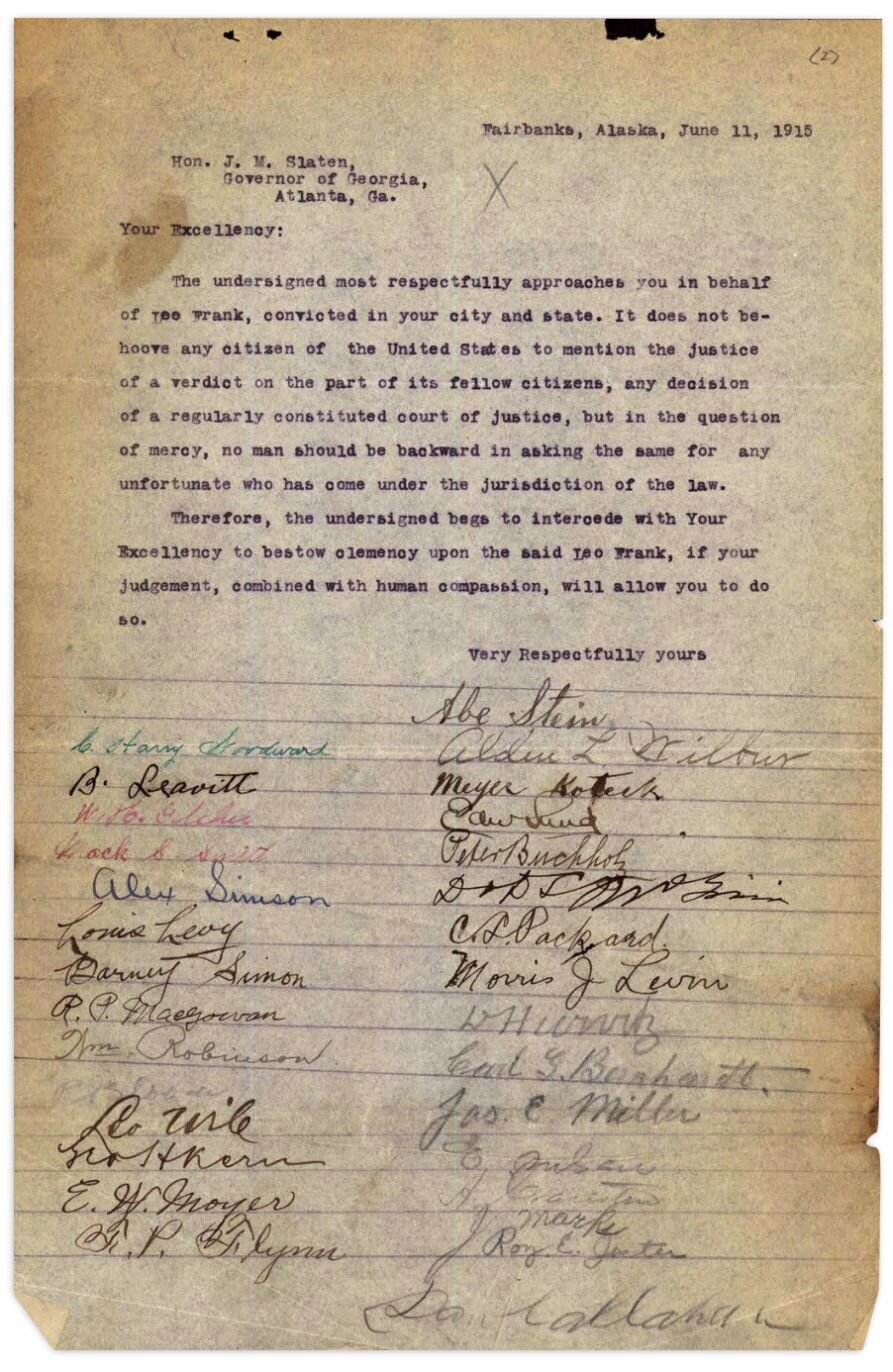Visual Artifact Page

birth of a nation
In 1915, film director D.W. Griffith released Birth of a Nation, a work of historical fiction about the Civil War and the American south. It is regarded as the cinema’s first ever blockbuster film.
The theatrical release poster is shown above.
birth of a nation
Birth of a Nation was a work of outright propaganda, revisionist history, and brazen racism. In the film, white men in blackface portray black characters as frightening savages, preying on white women.
birth of a nation
Movie-goers’ brochure
birth of a nation
A title screen from the film (shown above) quotes President Woodrow Wilson.
birth of a nation
An advertisement from the film from a showing in Seattle. Billed as the “8th wonder of the world.”
Various clips from Birth of a Nation (1915)
birth of a nation
The earliest showings of Birth of a Nation, took place in January of 1915, though it wouldn’t debut in Atlanta til later that year.
However, in May it was referenced by a film critic for the Atlanta Constitution (above), calling the film “wonderful.”
Sara conboy (1870 - 1928)
Sara Conboy was a proven labor leader who’d helped workers at textile mills around the country form labor unions. After leaving the strike efforts of the Fulton Bag & Cotton Mill in 1914, she returned, though briefly, in January, 1915.
elsas summoned
In early 1915, the Commission on Industrial Relations notified Oscar Elsas that he would be required to appear in a public hearing regarding the state of the southern textile industry.
Elsas reaches out
After being notified about the forthcoming hearing, Oscar Elsas began reaching out to anyone he knew who might be connected to one of the members of the Commission on Industrial Relations. One such person was Judge Richard Sloss in California. In March, he sent him the letter above, requesting that he “talk of us favorably” to one of the members of the CIR.
hearings called off
Days before the hearings were set to begin, Alexander Daly notified Oscar Elsas that the public hearings were officially called off.
elsas still prepares
Though the public hearings were called off, Elsas was still required to present his case before a smaller group. In the memos above, Elsas outlines the various witnesses he’s called to testify on his behalf.
the lusitania is sunk
On May 7, 1915, a British oceanliner, the Lusitania, was sunk by German torpedoes. The incident triggered a major escalation in what would later be referred to as World War I.
Gov. John Slaton (1866 - 1955)
John Slaton served as governor of Georgia from 1913 - 1915. When Leo Frank’s legal team ran out of appeal options in early 1915, the petitioned Slaton to commute Frank’s sentence from death to life in prison.
john slaton and wife
alaskans petition slaton
As governor, John Slaton received more than 100,000 letters from people around the country, asking him to commute Leo Frank’s sentence. This letter came from a group of group of legislators in Alaska.
slaton commutes frank’s sentence
On John Slaton’s last week of tenure as Georgia’s governor, he commuted Leo Frank’s sentence from death to life in prison. Before the announcement was made, Slaton ordered Leo Frank transported from his cell at the Fulton Tower to the Georgia State Prison Farm in Milledgeville.
Tom watson speaks out
Just a couple days after Slaton commuted Frank’s sentence, Georgia political pundit Tom Watson released a three page screed in his newspaper The Jeffersonian. Watson continued writing anti-Frank columns throughout the summer of 1915. During that time, the paper’s circulation tripled from a year earlier.
slaton as defender
The Puck was a political satire magazine founded in the late 1800s. After the Frank commutation, the publication posted the cartoon above, featuring John Slaton protecting Leo Frank from the vultures of mob rule, the death penalty, and race hatred.
nationwide coverage
Many papers around the country, such as this one in Chicago, ran front page stories about the aftermath of Slaton’s controversial decision.
the state prison farm at milledgeville
After commuting Frank’s sentence, Governor Slaton ordered Leo Frank to be moved to the state prison farm in Milledgeville, 100 miles south of Atlanta, where he would live out the rest of his days.
Frank slept in the building shown above which was demolished in 2018.
State Prison Farm
This photo was taken during the time when Leo Frank stayed at the state prison in Milledgeville in 1915. Someone marked it with an X to denote Frank’s sleeping cot.
Frank’s correspondence
In his first few weeks in Milledgeville, Leo Frank wrote hundreds of letters to friends and family.
In the letter above, Leo Frank writes to his mother to let her know about his recovery from being stabbed in the neck by a fellow inmate.
early morning news
On the morning of August 17, 1915, Atlantans awoke to news that Leo Frank had been abducted during an overnight raid on the state prison farm. When this early edition hit the streets, news of Leo Frank being lynched had not yet arrived.
“mob’s own story in detail”
The Atlanta Constitution ran another full-page story of Frank’s murder the day after. The photo at top left shows a crowd of people waiting to view Frank’s body at the funeral home.
national news
News of Frank’s lynching made the front page of virtually every newspaper in America. The paper above is from Austin, Texas.
leo frank lynched; morris looks on
Judge Newt Morris, who presided over the trials of Ernest Knox and Oscar Daniel in Forsyth County in 1912, was also one of the masterminds of the Leo Frank kidnapping and lynching. He is shown in this photo, standing to the right, behind Leo Frank’s body. He’s wearing a boater hat, buttoned jacket, and bowtie.
leo frank postcards
In the aftermath of the Frank lynching, several photos from the crime scene were turned into postcards and mailed across the country.
This one reads,
“THE END OF LEO FRANK
HUNG BY A MOB AT MARIETTA, GA
AUG. 17, 1915”
leo frank lynching marker
This marker stands in Marietta today, near the location where Leo Frank was lynched more than 100 years earlier.
Lucille’s grief
Lucille Selig Frank, wife of Leo Frank, wrote this letter to a writer at the Augusta Chronicle a little more than a month after her husband was killed.






























